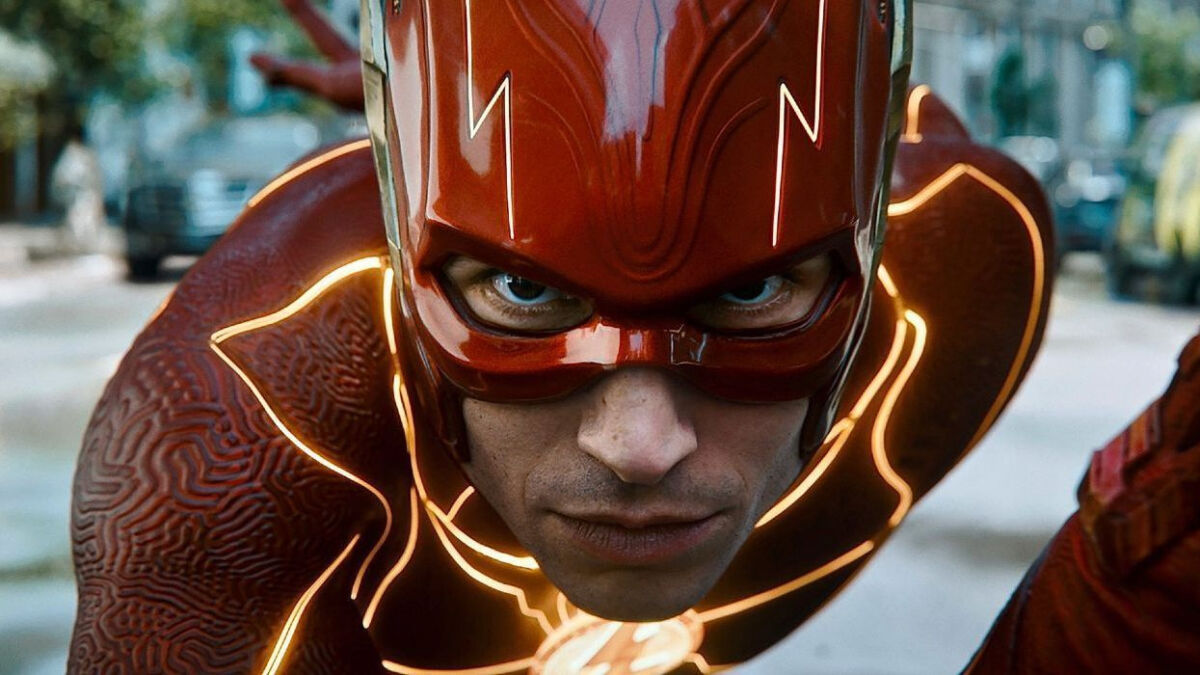Type “troubled film productions” into Google, and chances are The Flash will be among the search results you get back. DC Studios’ latest superhero blockbuster has endured everything from personnel problems to a global pandemic on its race to the big screen, so much so that there were even rumors it wouldn’t see the light of day. Yet arrive The Flash has, which begs the question: is it any good? The answer is a resounding “kinda,” as director Andy Muschietti’s long-gestating movie starts out promisingly enough before running out of steam the closer it gets to the finish line.
The Flash opens with Barry Allen kicking around the kind of conundrum unique to superheroes: what if I changed the past? As the faster-than-lightning Flash, time travel is in Barry’s wheelhouse – and he could use this power to save his mother, who was murdered when he was just a kid. Despite being warned of the dangers involved, Barry ultimately gives in to temptation, inadvertently creating an alternate reality. To set things right, Barry has to team up with this strange new world’s only other costumed adventurers – Batman (Michael Keaton), Supergirl (Sasha Calle), and his own younger self – and face down General Zod (Michael Shannon), at large once more thanks to Barry’s reckless actions.
Obviously, this is a lot to cover in a single film (even by the standards of the genre), and how effectively Muschietti keeps track of it all is key to determining whether The Flash itself works overall. Yet first, we need to address the Ezra Miller-sized elephant in the room. For many prospective viewers, Miller’s recent spate of legal troubles will make it impossible to buy a ticket to see, much less actually enjoy, The Flash. However, if you can overcome this potential dealbreaker – and again, that’s a big if for some people – there’s a lot to like about the star’s performance here.
Miller’s take on Barry Allen is decidedly quirkier than the character’s DC Comics counterpart (and he’s in desperate need of a decent running coach). That said, Miller nevertheless brings a likable enough blend of heroism, humor, and heartbreak to Barry, and not even the challenge of juggling more than one role is enough to break the actor’s stride. Miller isn’t the only stand-out performer in The Flash, though. Keaton is also predictably on point as the aged Batman, his gruff intensity (as well as a bevy of stuntmen and digital doubles) selling the 71-year-old as a plausible Dark Knight.
Unfortunately, The Flash’s wider ensemble cast feels a bit wasted. Hollywood veterans like Shannon, Ben Affleck, and Jeremy Irons, and rising stars like Calle and Saoirse-Monica Jackson all put in solid turns, but they’re given precious little to do. For a movie of multiverse-shaking proportions, The Flash boasts a relatively small stable of characters, yet the bulk of its memorable scenes boil down to Miller acting opposite Miller. Worse still, as Barry’s love interest Iris West, Kiersey Clemons is lumped with carrying the flick’s undercooked (and unconvincing) romantic subplot, which is almost certainly a holdover from DC Studios’ original plans to have The Flash serve as a franchise tentpole.
This is hardly The Flash’s only narrative misstep, either. While Muschietti and screenwriter Christina Hodson do an admirable job of keeping the movie’s increasingly outlandish plot digestible, The Flash ultimately succumbs to the same problems as other recent additions to the cape and tights canon. The stakes become too abstract to wrap our heads (or hearts) around. Plot beats and cameos seem designed more to give the hardcore DC faithful a dopamine hit than to move the story or its characters forward in a logical way. We’re given everything and it winds up amounting to almost nothing.
It’s the multi-million-dollar equivalent of a 10-year-old kid emptying their toy chest and cobbling together a story from the tangentially related action figures left scattered on the floor. The Flash’s over-reliance on visual effects does little to dispel this sensation, lending a plastic sheen to proceedings – especially the film’s climax, which quickly devolves into a formless blob of fan service.
In fairness, Muschietti and Hodson clearly want The Flash’s big finale to play as a sincere tribute to DC’s 89-year history, and on a certain level, it does. But (like so much of the rest of the film), these scenes are devoid of any real meaning beyond their inherent, superficial nostalgia. It’s as if the cast and crew are just out of frame and whispering, “Doesn’t this feel just like the first time you watched a Batman movie?”
Which isn’t to say that The Flash never manages to elicit a genuine emotional response. It does, particularly during the first two-thirds of its 144-minute runtime, when Muschietti and Hodson take great pains to establish Barry’s connection to both his parents. Moments such as these lay a solid foundation for our hero’s journey toward learning to let go and more of them – together with a more grounded third act – probably would’ve better sold the film’s heartfelt (if overwrought) denouement.
And to the film’s credit, The Flash’s first few action scenes are inventively staged and shot, in the great “How will they get out of this?” tradition. It really does have all the ingredients for a stellar superhero movie, right there at the start. But movies are a marathon, not a sprint – The Flash runs out of puff far too early to claim a podium position.
READ NEXT: 5 Biggest New Movies of June 2023 – We’re in Disney Territory
Some of the coverage you find on Cultured Vultures contains affiliate links, which provide us with small commissions based on purchases made from visiting our site. We cover gaming news, movie reviews, wrestling and much more.





